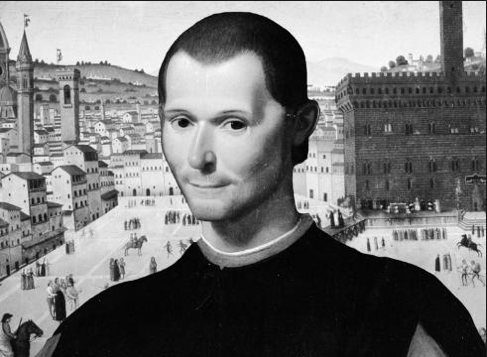By Ilcatxo Facto
The passing of Montreal's godfather Vito Rizzuto this week has been marked with a remembrance of his secretive and violent life and the tragedies and ruthlessness engendered in the mob world. Understanding this world through the lens of Machiavelli will, perhaps, cast light into this dark world.
Niccolo Machiavelli argues that seeing gives to everyone, but touching is something distinct; flesh must meet, because from a distance flesh can only be ideas. Thus, to rule effectively, one must enact violence, flesh must meet flesh.
If ever there endures in contemporary times an example which represents the Renaissance political system, it is the mafia. Thus, the godfather might be compared to the ideal Renaissance prince, since the leadership of both organizations relies on loyalties, exaltation or praise, and conspiracies to subsist.
Machiavelli explains that power is diminished from exhibition because a prince becomes weaker when he is exposed to the public eye; therefore, neither a prince nor a godfather can be exposed when conducting actions against humanity. Thus, as leaders, they rely on an inner circle of fellows, a cabal of sorts, to enact violence on their behalf. And futhermore, in their stead, they challenge the powerful and the rich to enhance their own power and reputation and offer an affordance to this enrichment. A mafia-constructed harmony arises from the protection and security the mob offers in lieu of destruction.
A godfather is esteemed according to his qualities of persuasion, his ability to convince others to believe that everything is fine as long as he is in control.
Machiavelli writes further that a prince should behave prudently in order to succeed. Only if a prince is capable to defend his own people, will will he engender loyalty. A godfather cannot defend the others if he is not able to defend himself. If his army is stronger and he decides to attack first, he will succeed because, eventually, he will eliminate his enemies and keep them far from home; at the same time, he will be respected by his own people and his inner-circle.
Machiavelli explains that it is necessary for a prince to be so prudent that he knows how to flee the infamy of those vices that might take the power away from him. If a prince wishes to maintain himself in power, it is necessary for him to learn how to be evil and use this faculty constantly and not to use it according to necessity.
Leadership in a carnival of lust and violence is engendered through a deity-like existence of worship. However, maintaining this praise or apotheosis is troublesome. The congregation of gluttons seeks a leader that demonstrates virtuosity or brilliance; therefore, in order to be esteemed, a prince or godfather should be charismatic, generous, and friendly with his people, gaining and losing popularity when he acts as a true ally or true enemy of his rivals and/or his people.
It is found in history that most conspiracies are made by great men, or those very familiar to them; therefore, a mix of prudence and evilness aids the godfather to discern among their inner circle to avoid conspiracies and to be successful. Ultimately, Machievelli argues, the Renaissance prince who wishes to guard himself from conspiracies should fear more those who he has done too many favours more so than those to whom he has done too many injuries; the wish is similar because the desire to dominate is as great or greater than is vengeance.
Princes and godfathers have no greater enemy than conspiracy. The execution of those around him demonstrates keen prudence and a constancy that demands worship.
In order to apply revenge as justice, a godfather intimidates those who are against his fellows, who he considers as his own enemies. Punishment is the method used to exert violence, and as a consequence, people fear the mafia for the violent procedures against those people that have violated mafia codes, interests, and the interests of the ones within the inner-circle.
A mafioso may be respected as a leader if he is not abusive to his own people, if he is able to create harmony among individuals and punish those who are doing wrong, strengthening his power and turning the notion of virtue into three main loyalties to family, leader, and friends.
The mafia, like all political systems, is incompatible with morality. And, ultimately, the legacy of Vito Rizzuto arises from his influential leadership and his impact on the social, economic, and political life of Montreal society.

Leave a comment